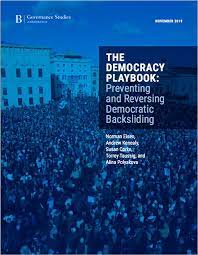A group of exiled Venezuelan judges aligned with Venezuelan opposition leader and U.S. ally Juan Guaido has hired law firm Bryan Cave Leighton Paisner to engage with U.S. officials about the effects of U.S. sanctions, Reuters reports.
The news follows reports that Guaido has held “informal meetings” with members of newly elected Colombian President Gustavo Petro’s government.
Talks between Caracas and Washington around the release of the US citizens now overshadow negotiations between Maduro’s government and opposition leaders, which began after intense street protests in 2019, CNN suggests.
 The regime’s dysfunctionality and repression have forced at least 6,147,040 Venezuelans into exile as refugees and migrants across the world, of whom 5,087,495 are in Latin America and the Caribbean, according to La Plataforma de Coordinación Interagencial para Refugiados y Migrantes (R4V – above).
The regime’s dysfunctionality and repression have forced at least 6,147,040 Venezuelans into exile as refugees and migrants across the world, of whom 5,087,495 are in Latin America and the Caribbean, according to La Plataforma de Coordinación Interagencial para Refugiados y Migrantes (R4V – above).
Venezuela stands out as an example of a criminalized state, says analyst Moisés Naím, author of The Revenge of Power. The state becomes an organized criminal organization that essentially uses the structure, strategies, tactics, modalities of organized crime, he tells Democracy Paradox.
Maduro maintains a tight grip on Venezuelan society, supported by loyal government officials and the military who keep him in power, analysts observe. Lack of judicial independence allows the regime to maintain control over the population, granting officials complete impunity.

Opportunities for international engagement with Venezuela’s leading public figures, civil society, and private sector actors will be the focus of a new initiative designed to kick-start democratic reform, Global Americans reports.
The Way Forward for Venezuela project will evaluate dynamics within the Venezuelan political ecosystem, not only in Caracas, but across the country at the state and local levels. It will also assess relationships among factions in the Venezuelan opposition and sectors of Chavismo.
The erosion of democracy around the world has followed a similar pattern, or “playbook,” which authoritarian leaders are increasingly replicating to undermine democracy. In Venezuela, the Maduro regime has used—and perfected—the dictator’s playbook. With elections likely looming in 2024, it is important to understand whether the exercise of elections could serve as an important rallying point for a democracy playbook in Venezuela, CSIS adds.
 A forthcoming event will discuss the practical ways in which the Venezuelan opposition, democratic leaders in the Western Hemisphere, civil society, multilateral organizations, and the private sector can utilize tools from the democracy playbook to begin restoring Venezuela’s democracy and create space for more competitive elections in 2024.
A forthcoming event will discuss the practical ways in which the Venezuelan opposition, democratic leaders in the Western Hemisphere, civil society, multilateral organizations, and the private sector can utilize tools from the democracy playbook to begin restoring Venezuela’s democracy and create space for more competitive elections in 2024.
Sharpening the Democracy Playbook: A Practical Approach for Venezuela
Speakers:
- Ryan C. Berg, Senior Fellow, Americas Program.
-
— Democracy Digest (@demdigest) August 18, 2022







